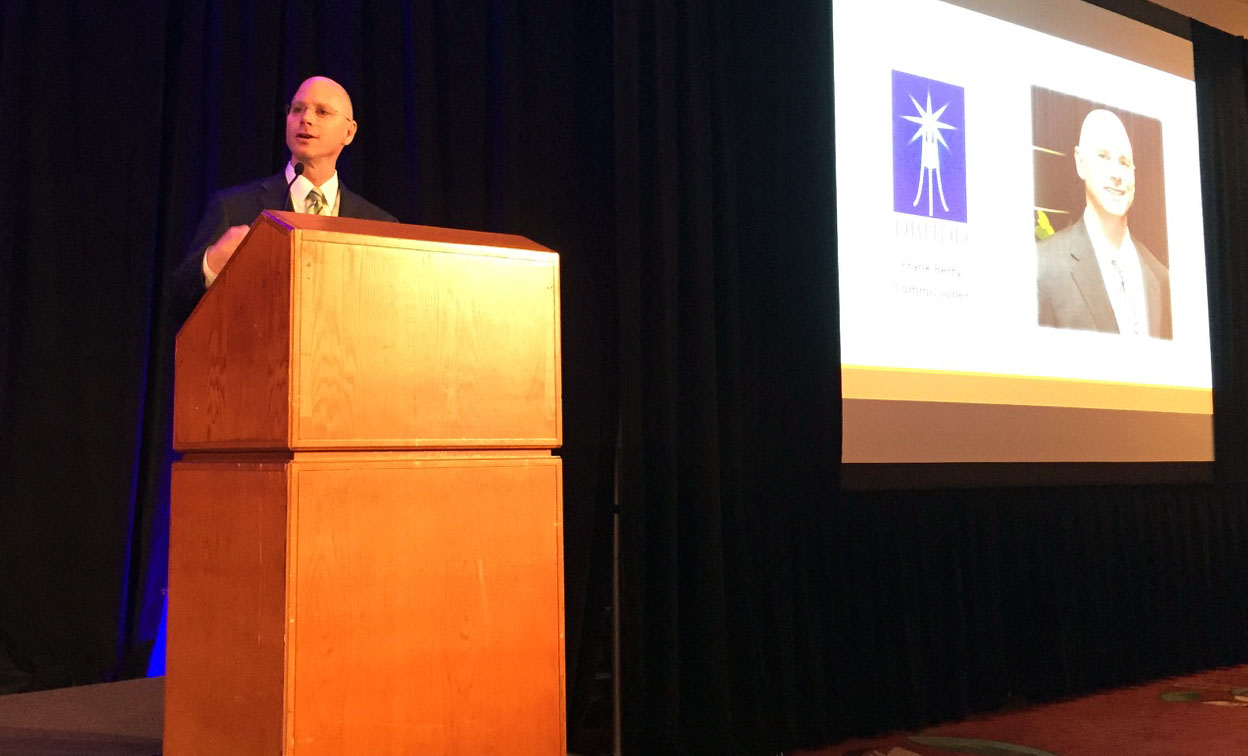On July 17, DBHDD graduated the second cohort of the Management Academy, a six-month program designed to train and support emerging leaders within the department. The program was co-developed by DBHDD’s Office of Learning and Organizational Development and the University of Georgia’s Carl Vinson Institute of Government.
In addition to the program curriculum, which covers topics such as “leading in the public sector” and “enhancing organizational effectiveness,” participants work in groups throughout the program to study and make recommendations on specific, DBHDD-focused issues and projects.
Before the lunchtime graduation ceremony, Cohort 2’s five interdisciplinary teams presented their findings to their classmates and DBHDD leadership.
Presentation Summaries:
Group 1: New Employee Orientation and Onboarding
Goal: To help DBHDD’s Office of Learning and Organizational Development by studying the department’s various new employee orientation programs and making recommendations on how to create standardized orientation program for all staff.
Team members: Julia Arthur, Katherine McKenzie, Ramona Pullin, Dr. Jamie Short, Candace Walker
Group 2: Bridging the Gap: IDD Waiver Funding Approval
Goal: To help improve the process of awarding waivers to individuals with intellectual and developmental disabilities. They interviewed DBHDD staff and families of individuals receiving waiver services. Recommendations included establishing a uniform communication process to ensure consistency and quality across our system.
Team members: Kenneth Ward, Allen Morgan, JaVonna Daniels
Group 3: Addressing the needs of dually diagnosed individuals
Goal: To help staff who care for dually diagnosed individuals access information that will help them provide better care by creating the website: Filling the GAP: Georgia Access Point. The site is intended to help staff improve care, mitigate challenges for people with a dual diagnosis, and identify cost savings that allow DBHDD to provide care to more individuals.
Team members: Brittaney Mills, CeCelia Dixie, Tiffany Snow, Linda Dykes, Holly Crowley, Yvonna Sherrell
Group 4: Communicating and Socializing DBHDD’s Vision and Mission Statements
Goal: To help the department promote our vision and mission statements to DBHDD staff, providers, advocates, consumers and the general public.
Team members: Marcy Burns, Andrea Harrelson, Fatma Jones, Michael Link, Jill Mays
Group 5: Promotion of the Crisis Continuum
Goal: To improve marketing of education to individuals and families about crisis services.
Team members: Paula Walden, J.R. Gravitt, Kimberly Miller, Lori Hanes

